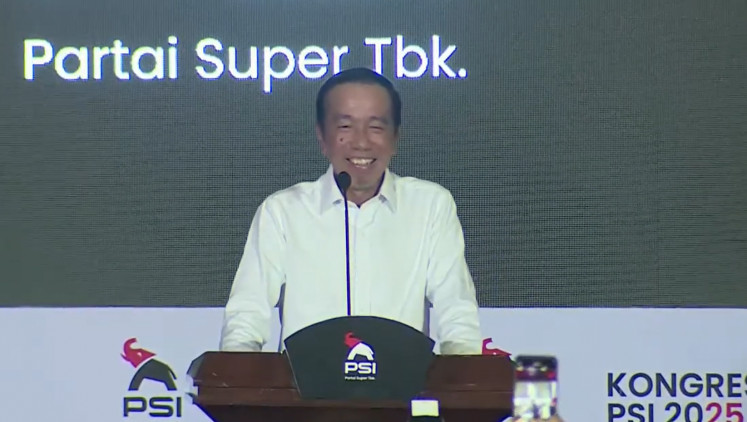Popular Reads
Top Results
Can't find what you're looking for?
View all search resultsPopular Reads
Top Results
Can't find what you're looking for?
View all search resultsKiller's body refused in own village
It was a long road to the grave for convicted mass murderer Ahmad Suradji, who was executed Thursday night, as neighbors picketed the deceased's own backyard to prevent his burial in Aman Damai village, Deli Serdang regency
Change text size
Gift Premium Articles
to Anyone
It was a long road to the grave for convicted mass murderer Ahmad Suradji, who was executed Thursday night, as neighbors picketed the deceased's own backyard to prevent his burial in Aman Damai village, Deli Serdang regency.
Local villagers contended that the shaman, who was executed for murdering 42 women, did not deserve to be buried in the village, let alone the neighboring backyard.
"Better to just throw his body into the river. He murdered his own neighbors. I cannot just forgive him," Ana, a local, said Friday.
Hundreds of the villagers blockaded the road on Friday to prevent the ambulance carrying the body from entering the village, forcing it to change direction to a public cemetery near the district administration office.
Again, locals refused to allow his burial there.
His body was finally buried at Keling Garuda public cemetery, several kilometers away in a neighboring village.
The funeral was hastily conducted in 15 minutes.
Suradji's lawyer Adi Mansar, who claimed he was shocked by the refusal, said the burial was moved to prevent possible physical clashes with the villagers.
Some officials from the local attorney's office and the district government administration witnessed the burial, he said.
Suradji's 90-year-old mother, Sartik, expressed disappointment over the refusal, saying her son had once told her of his wish to be buried in his own yard.
According to reports, Suradji was executed at a rubber plantation in Jaharum subdistrict, Galang district, Deli Serdang at 9:58 p.m. local time by a firing squad from the North Sumatra Police mobile brigade elite unit.
Suradji's execution was carried out after a second petition for clemency was rejected by President Susilo Bambang Yudhoyono.
Suradji's criminal exploits have became infamous for their brutality. He told police he buried his victims up to the waist and then strangled them before reburying their bodies with the heads pointing toward his house.
He confessed he did so in an attempt to gain magical powers.
He began his killing spree after he had a vision of his late father in a dream, who instructed him to murder 70 women as part of a black magic ritual.
Suradji was sentenced to death in 1998 after police found the victims' bodies buried in a sugar cane field near his house.
His first wife, Tumini, who is the eldest of three sisters all married to Suradji, was also sentenced to death for assisting with the murder but the sentence was later commuted to life imprisonment.
Rights watchdog Amnesty International campaigned to prevent his execution on humanitarian grounds, saying it recognized the need for addressing serious crime but was convinced the death penalty did not provide a solution.










